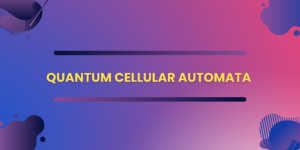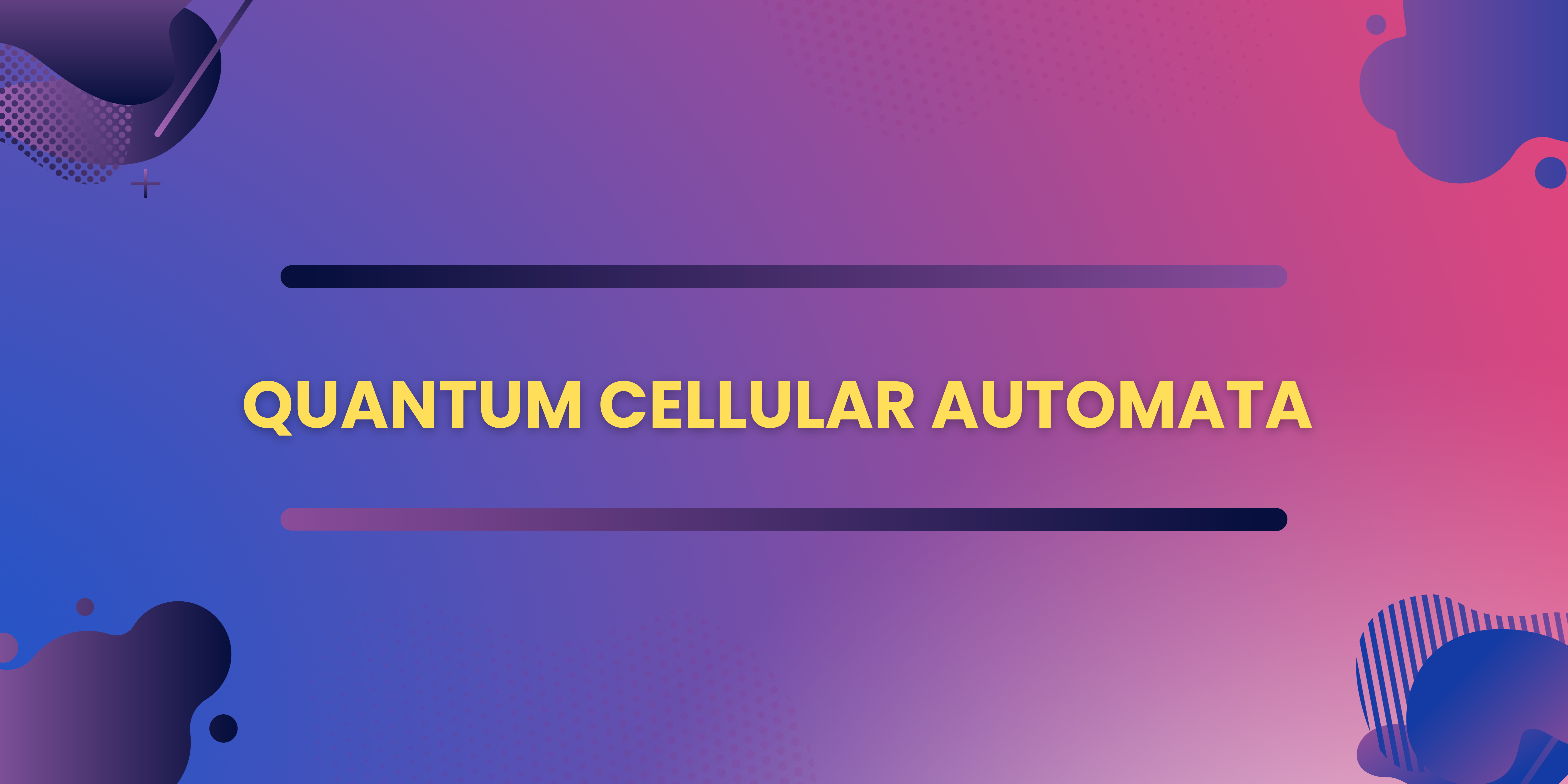Quantum Cellular Automata (QCA) stands out as a revolutionary concept of quantum mechanics with the foundations of cellular automata. It holds the innovative considerations of transforming computing. This article contains all about Quantum Cellular Automata (QCA).

Definition of Quantum Cellular Automata (QCA)
Quantum Cellular Automata refers to a cutting-edge paradigm in quantum computing that leverages the principles of cellular automata, a concept that dates back to the mid-20th century. Unlike classical automata, QCA operates on quantum bits, or qubits, harnessing the power of quantum entanglement for information processing.
Important Historical Background
To appreciate the significance of QCA, a brief look at its historical roots is necessary. The concept of cellular automata, introduced by mathematician John von Neumann, laid the groundwork for QCA. Over the years, advancements in quantum mechanics paved the way for the integration of quantum principles into cellular automata, giving rise to the revolutionary field of Quantum Cellular Automata. Quantum cellular Automation
Significance in Modern Computing
As we land on the intricacies of QCA, it’s crucial to understand its relevance in the contemporary computing landscape. Quantum computing, with QCA at its forefront, holds the key to solving complex problems that were once deemed insurmountable by classical computers. From cryptography to artificial intelligence, the applications of QCA are vast and transformative.
Basics of Quantum Cellular Automata
Explanation of Cellular Automata
Before we explore the quantum realm, let’s establish a foundation in cellular automata. [1] These are mathematical models that consist of a grid of cells, each with a state that evolves over discrete time steps based on a set of rules. This deterministic evolution serves as the basis for classical automata.
Quantum Mechanics Integration
What sets QCA apart is its seamless integration of quantum mechanics into the realm of cellular automata. While classical automata operate with bits in binary states (0 or 1), QCA utilizes qubits, which can exist in multiple states simultaneously due to the principles of superposition.
Qubits and Their Role in QCA
At the heart of QCA are qubits, the quantum counterparts to classical bits. These subatomic particles, when manipulated using quantum gates, enable QCA to process information in a parallel and exponential fashion. The utilization of qubits introduces a level of computational power that surpasses classical computing capabilities.
Working of the Quantum Cellular Automata
QCA versus Classical Automata
To grasp the significance of QCA, it’s essential to compare it to its classical counterpart. While classical automata operate sequentially, QCA processes information concurrently through the entanglement of qubits. This parallelism leads to an exponential increase in computational speed and efficiency.
Quantum Entanglement in QCA
One of the key phenomena that define QCA is quantum entanglement. Qubits can become entangled, meaning the state of one qubit instantaneously influences the state of another, regardless of the physical distance between them. This interconnectedness forms the basis for the rapid and synchronized information processing in QCA.
Information Processing in QCA Cells
Within the intricate lattice of QCA cells, information is processed with unparalleled speed. The rules governing the evolution of cellular automata states are manipulated by quantum gates, allowing for complex calculations to be performed simultaneously. This not only accelerates computation but also opens doors to solving problems that were previously beyond the reach of classical computing.
Applications of Quantum Cellular Automata
1. In Quantum Computing Advancements
The primary application of QCA lies in the realm of quantum computing. Traditional computers struggle with certain computations, such as factoring large numbers, which are crucial for cryptographic algorithms. QCA’s parallel processing capabilities make it well-suited for tackling these challenges, potentially revolutionizing the field of cryptography.
2. Use for Cryptography
As quantum computing advances, the impact on cryptography is profound. QCA, with its ability to swiftly perform complex calculations, poses both opportunities and challenges for cryptographic systems. The development of quantum-resistant encryption becomes imperative as we navigate the evolving landscape of cybersecurity.
3. QCA in Artificial Intelligence
Beyond cryptography, QCA holds promise in the field of artificial intelligence. The ability to process vast amounts of data simultaneously aligns with the demands of AI applications, ranging from machine learning to neural network simulations. QCA’s role in accelerating AI development signifies a paradigm shift in computational capabilities.
Current Challenges in QCA Development
Despite its revolutionary potential, QCA faces challenges in practical implementation. Maintaining qubit coherence, minimizing errors, and overcoming technological constraints are among the hurdles that researchers and engineers are actively addressing.

Quantum Cellular Automata vs. Traditional Computing
Speed and Efficiency Comparison
The comparison between QCA and traditional computing reveals a stark difference in speed and efficiency. QCA’s parallel processing capability allows it to outperform classical computers in tasks that demand simultaneous computation of multiple possibilities.
Energy Consumption Differences
Another distinguishing factor is the energy efficiency of QCA. Traditional computers, especially as they approach the limits of Moore’s Law, face challenges related to heat dissipation and energy consumption. QCA, with its ability to perform computations with minimal energy expenditure, presents a more sustainable alternative.
Quantum classical cellular Automation
Practical Applications of QCA in Everyday Life
While the impact of QCA is evident in advanced computing fields, its ripple effect extends to everyday life. From faster data processing in personal devices to enhanced efficiency in smart technologies, QCA has the potential to reshape the technological landscape that we encounter daily.
[1] https://link.springer.com/referenceworkentry/10.1007/978-0-387-30440-3_426


1 thought on “Quantum Cellular Automata: Unraveling the Future of Computing”